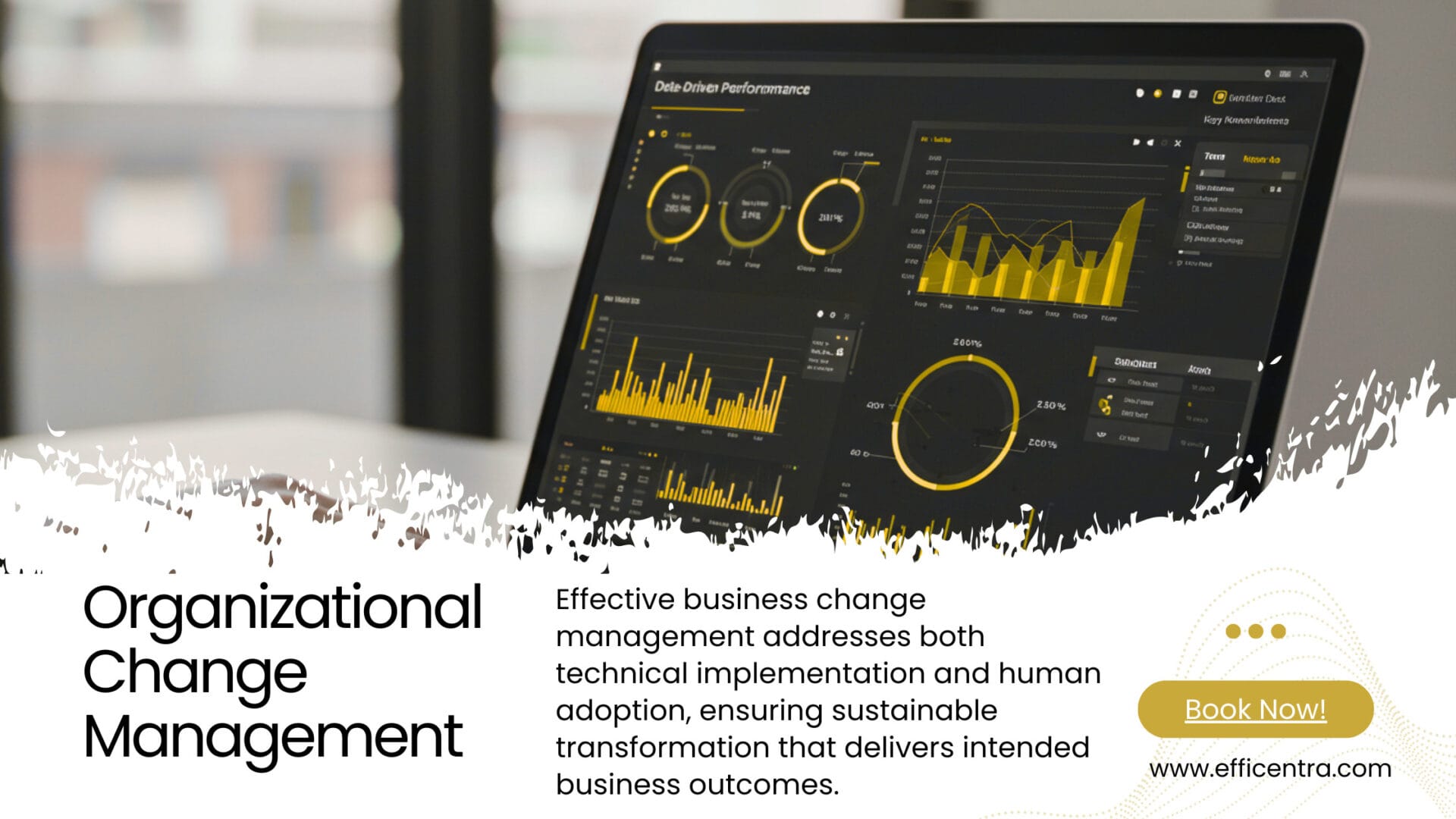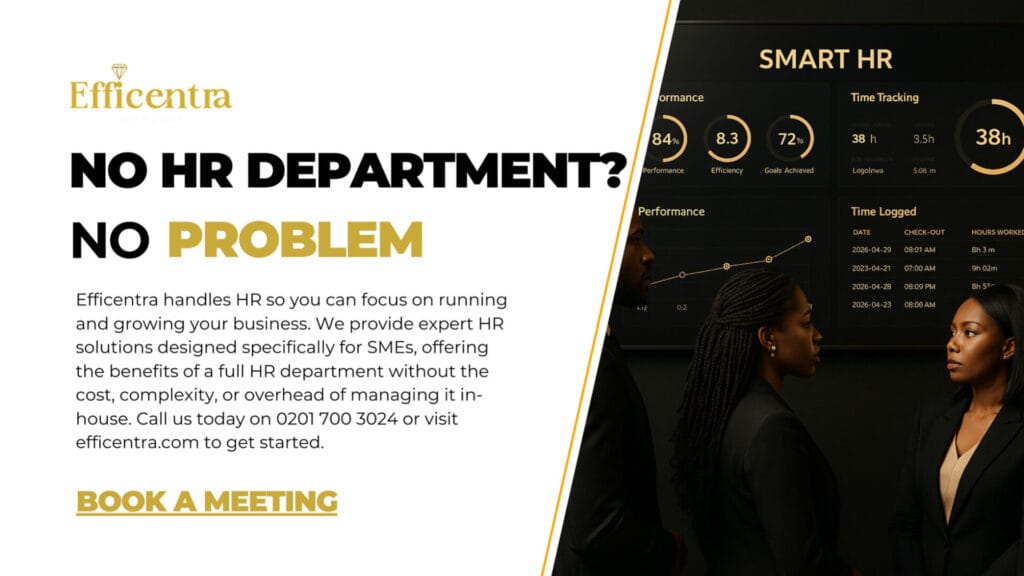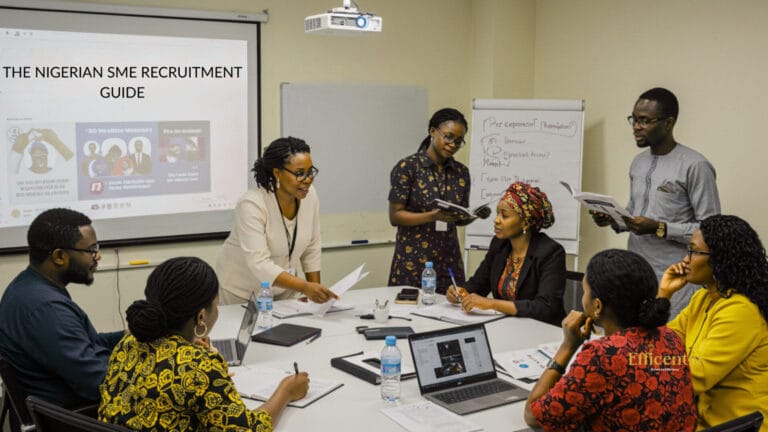Organizational Change Management: 4 Essential Strategies for Success
Master organizational change management with proven strategies, essential tools, and change agent best practices. Transform your business successfully with expert guidance.
Organizational change management has become a critical business capability as companies face constant pressure to adapt, innovate, and transform. Whether implementing new technology, restructuring operations, or shifting business strategies, effective change management strategies determine the difference between successful transformation and costly failure.
Understanding the challenges of organizational change and implementing proven methodologies with appropriate tools and skilled change agents can dramatically improve your transformation success rate.
What is Organizational Change Management?
Organizational change management is the structured approach to transitioning individuals, teams, and organizations from current state to desired future state. This encompasses process improvements, technology implementations, cultural transformations, and strategic pivots that require coordinated human and operational adjustments.
Effective business change management addresses both technical implementation and human adoption, ensuring sustainable transformation that delivers intended business outcomes.
Core Challenges in Organizational Change Management
Employee Resistance and Uncertainty
The primary obstacle in organizational change management is employee resistance stemming from fear of unknown outcomes, job security concerns, or comfort with existing processes. This resistance manifests through passive non-compliance, active opposition, or simply maintaining old habits despite new requirements.
Common resistance drivers include:
- Uncertainty about personal impact and career implications
- Lack of understanding about change necessity and benefits
- Previous negative experiences with organizational transformation
- Insufficient involvement in change planning and decision-making
Communication Breakdown
Poor communication consistently undermines change management strategies. When employees receive inadequate, inconsistent, or unclear information about transformation initiatives, confusion and mistrust develop rapidly.
Communication failures typically involve:
- One-way messaging without feedback opportunities
- Technical language that employees cannot understand
- Inconsistent messages from different leadership levels
- Failure to explain compelling reasons for change
Insufficient Leadership Commitment
Organizational change management requires visible, consistent leadership support throughout the entire transformation process. When leaders announce changes but fail to model new behaviors or provide necessary resources, credibility erodes and initiatives stagnate.
Cultural Misalignment
Changes that conflict with organizational culture face significant resistance and poor adoption rates. Effective change management consulting must consider cultural dynamics, informal power structures, and established relationship patterns that influence employee behavior.
Proven Change Management Strategies That Work
Establish Clear Vision and Purpose
Successful organizational change management begins with articulating compelling reasons for transformation. Employees must understand not just what is changing, but why change is necessary and how it benefits both the organization and individuals.
Key elements include:
- Clear problem definition that change addresses
- Inspiring vision of future state benefits
- Specific outcomes and success measures
- Personal impact explanation for different employee groups
Build Strong Change Leadership
Effective change management strategies require committed leadership at all organizational levels. This includes executive sponsorship, middle management alignment, and change champion networks that advocate for transformation throughout the organization.
Leadership responsibilities encompass:
- Visible commitment and resource allocation
- Consistent messaging and behavior modeling
- Obstacle removal and support provision
- Recognition and celebration of progress
Implement Systematic Communication
Business change management success depends on multi-channel, ongoing communication that keeps stakeholders informed, engaged, and motivated throughout the transformation process.
Communication best practices include:
- Regular updates through multiple channels and formats
- Two-way dialogue with feedback collection and response
- Stakeholder-specific messaging that addresses particular concerns
- Progress celebration and milestone recognition
Invest in Training and Support
People need skills, knowledge, and confidence to succeed in new environments. Comprehensive training programs and ongoing support systems help employees navigate transformation successfully while building organizational capability.
Essential Change Management Tools
Project Management and Planning Platforms
Modern change management tools provide centralized coordination for complex transformation initiatives:
Key features:
- Task management and timeline planning
- Resource allocation and progress tracking
- Stakeholder communication and collaboration
- Risk identification and mitigation planning
Recommended platforms: Zoho Projects, Microsoft Project, Asana, Monday.com
Communication and Collaboration Tools
Effective organizational change management requires robust communication infrastructure:
Essential capabilities:
- Real-time messaging and video conferencing
- Document sharing and collaborative editing
- Channel organization for different stakeholder groups
- Integration with other business systems
Popular solutions: Zoho Workplace, Microsoft Teams, Slack, Google Workspace
Survey and Feedback Systems
Change management strategies must include continuous feedback collection and sentiment monitoring:
Feedback tool benefits:
- Baseline assessment and progress tracking
- Early issue identification and resolution
- Stakeholder engagement measurement
- Data-driven decision making support
Effective platforms: Zoho Survey, SurveyMonkey, Typeform, Google Forms
Analytics and Reporting Tools
Data visualization and reporting capabilities enable objective progress measurement and stakeholder updates:
Analytics features:
- Custom dashboards for different audiences
- Real-time progress monitoring
- Trend analysis and predictive insights
- Automated reporting and alerting
The Role of Change Agents in Organizational Transformation
Change management consulting professionals or internal change agents serve as transformation catalysts who facilitate, support, and champion organizational change initiatives.
Key Change Agent Responsibilities
Assessment and Planning: Conduct organizational readiness assessments, identify requirements, and develop comprehensive change management strategies.
Communication Facilitation: Bridge communication gaps between leadership and employees, ensuring messages are clear, consistent, and well-received.
Training and Support: Design skill development programs, provide ongoing support, and help employees build capability for new requirements.
Resistance Management: Identify resistance sources and work with individuals and groups to overcome obstacles through education, involvement, and support.
Essential Change Agent Skills
Effective change agents combine strong communication abilities with organizational understanding, project management expertise, emotional intelligence, and persistence to guide organizations through complex transformations.
Implementation Framework for Successful Change Management
Phase 1: Preparation and Assessment (Weeks 1-4)
- Conduct stakeholder analysis and organizational readiness assessment
- Define change objectives, scope, and success metrics
- Develop communication strategy and implementation timeline
- Select and configure change management tools
- Identify and prepare change agent network
Phase 2: Communication and Engagement (Weeks 5-8)
- Launch communication campaign explaining change vision and benefits
- Conduct stakeholder engagement sessions and collect feedback
- Begin training and skill development programs
- Address early concerns and resistance proactively
- Establish progress monitoring and reporting systems
Phase 3: Implementation and Execution (Weeks 9-20)
- Execute changes in planned phases with continuous support
- Monitor progress and address obstacles as they arise
- Maintain regular communication and feedback collection
- Celebrate early wins and maintain transformation momentum
- Adjust strategies based on feedback and changing circumstances
Phase 4: Reinforcement and Sustainability (Weeks 21-24+)
- Embed changes into organizational processes and culture
- Conduct comprehensive evaluation and impact assessment
- Document lessons learned and best practices
- Transition to ongoing support and continuous improvement
- Build organizational change capability for future initiatives
Measuring Change Management Success
Effective organizational change management requires systematic measurement using adoption metrics, engagement indicators, and business impact measures. Key performance indicators include training completion rates, new process adoption levels, employee satisfaction scores, and achievement of intended business outcomes.
Regular review cycles, feedback integration, and lessons learned documentation enable continuous improvement and organizational change capability building.
Building Change-Ready Organizations
Successful business change management extends beyond individual projects to building organizational transformation capability. Companies that invest in developing internal expertise, establishing proven processes, and leveraging appropriate technology tools position themselves for ongoing success in dynamic business environments.
The most effective change management strategies treat transformation as a strategic organizational capability rather than project-specific activities. This approach enables companies to adapt quickly to market changes, implement innovations successfully, and build sustainable competitive advantage through agility and responsiveness.
Ready to transform your organization’s change capability?
Professional change management consulting can help you develop the strategies, tools, and expertise needed to navigate transformation successfully while building long-term organizational agility.








